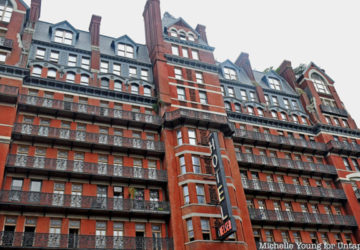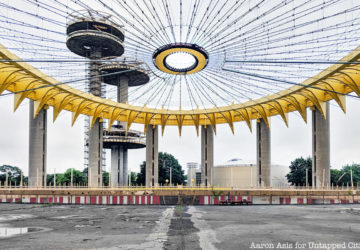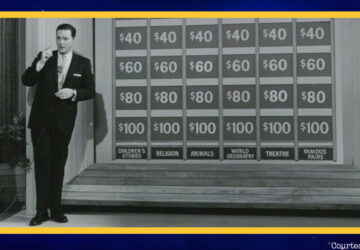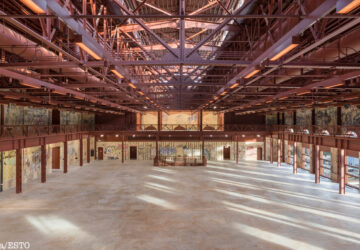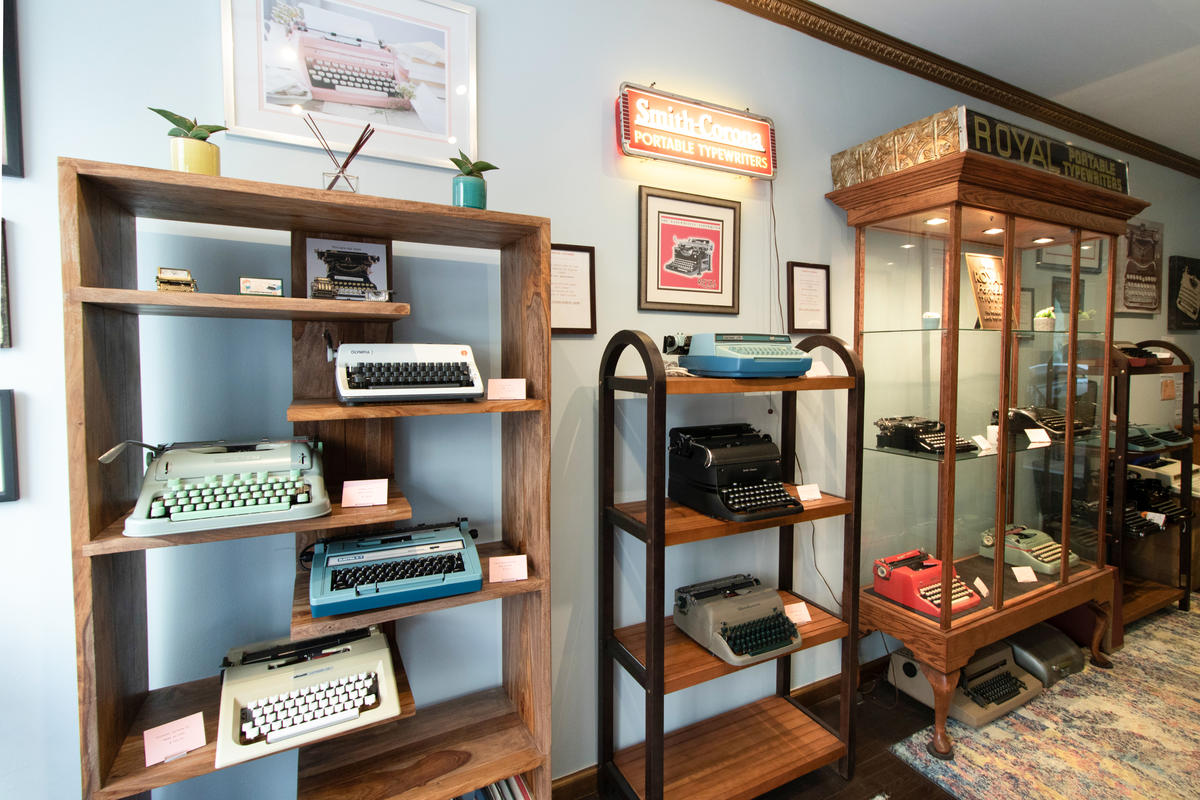The click clack of typewriter keys along with the swoosh and ding of starting a new line may be a foreign sound to many, but it’s a frequent and welcome noise in this little shop on 17th Street in Manhattan. At 108 W 17th St., the storefront of the Gramercy Typewriter Co., the seemingly obsolete technology of manual and electric typewriters is alive and thriving. The store is the retail arm of a family run repair company which has been passed down through three generations. The company is now run by Justin (Jay) and his father Paul Schweitzer. The company has had many homes throughout New York City over the years, and is one of the last of its kind.
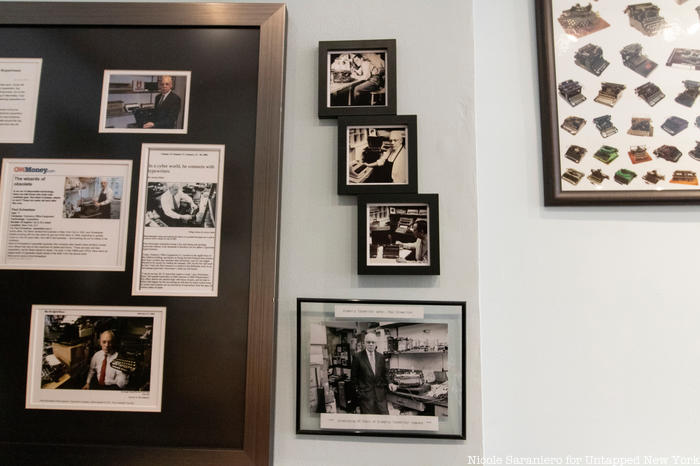 Pictures of the three generations of Schweitzers hang on a wall in the shop
Pictures of the three generations of Schweitzers hang on a wall in the shop
Gramercy Typewriter Company was founded by Abraham Schweitzer in 1932. While attending college in the city, Schweitzer searched for a part time job, something that would let him work with his hands. He eventually landed a job with a small typewriter repair company. His son Paul explains how after spending a bit of time with the company, “he learned a little something about typewriters, and he realized, ‘Hey, I can do this on my own.'”
Schweitzer branched off and started making office calls for typewriter repairs and maintenance on his own. “You have to realize, back then, every desk in every office had a typewriter,” says Paul, much like we all have laptops and computers in our offices today. Abraham’s first brick and mortar base for the Gramercy Typewriter Company was a little space he rented near Gramercy Park. “He stayed with that and it started to do a little bit better and better, and college went by the wayside,” his son recounts.
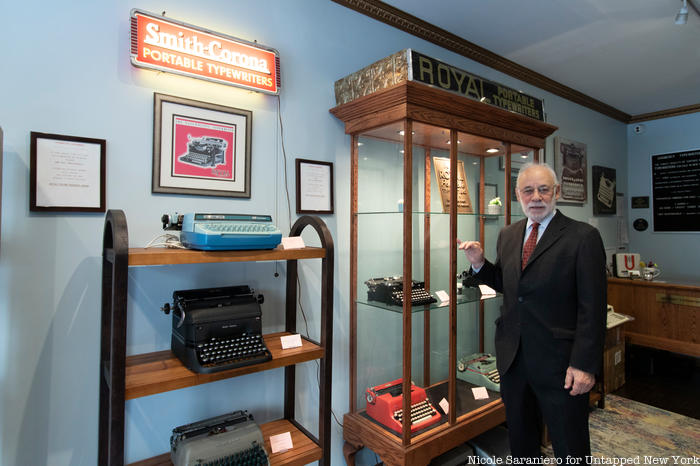 Paul Schweitzer, second generation owner
Paul Schweitzer, second generation owner
Paul fondly remembers when his father would work out of the basement of their family home in Brooklyn. “At a very young age I would watch him and help him. He also manufactured typewriter ribbons in the basement of the home,” Paul recalls. He says he always knew he would one day join the family business. After three years in the Navy, Paul came home and started working with his father in 1959. “And here I am sixty years later, still doing it.”
Since teaming up with his father, Paul has witnessed an incredible sea change in technology, and has adapted the business to accomodate it. Manual typewriters gave way to electronic typewriters and ultimately computers. But electronic typewriters and computers need printers. So, when offices no longer had use for typewriter maintenance and ribbon, the company started to offer printer repair services and toner cartridges. To this day, Paul and the team continue to make repair and maintenance visits to service printers.
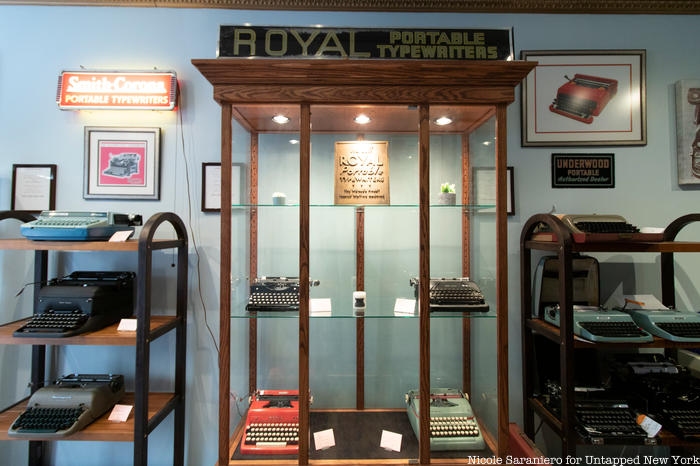
“It was was always a repair business,” says Paul, “I was in the Flatiron Building for 47 years…then we moved across the street to 174 Fifth Avenue. I was there for about 15 years or so.” But in the past couple decades, the business has seen a resurgence in the desire for manual typewriters. “My son decided it would be nice to open up a store,” Paul says of the inception of their newest location on 17th Street, which opened early in 2019. Paul and his father originally opened up a storefront on 23rd Street in the sixties, but most of their time was spent on service calls, so it wasn’t viable at that time. Before opening up the new storefront, the Schweitzers sold typewriters and offered repair services online. “We get people to ship us machines from all over the country for maintenance and repairs,” says Paul, sometimes even foreign countries.
Paul and his son Jay are the last of a rare breed who still offer manual typewriter restoration and repair services. While there used to be hundreds of companies and individuals in New York City alone who offered these types of services, there are now only a handful nationwide. “There are fewer and fewer of us doing this all over the country,” Paul notes, “Very few, but we’ve noticed that there’s quite a demand for typewriters specially with the younger people. They enjoy typing on a typewriter. It takes some practice to get the feel of it, but they do. They want to be writers, they want to type like Hemingway, he wrote all his books on typewriters, and they want to do the same thing.”
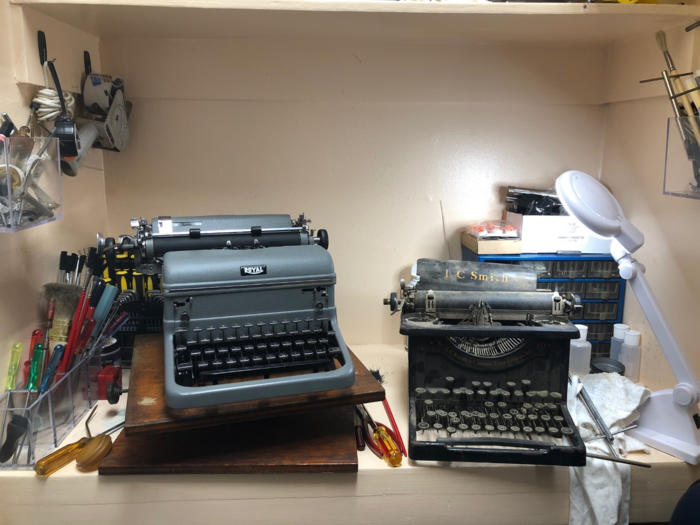 Typewriters in service at the workshop, Photograph Courtesy of C. Plair
Typewriters in service at the workshop, Photograph Courtesy of C. Plair
The storefront allows customers to see refurbished machines and bring in machines they may already own for consultations, but the nitty gritty restoration work gets done in the Schweitzers’ workshop on Fifth Avenue.”Each machine has to be in the shop, overhauled, washed cleaned, new rollers, all redone,” says Paul of the intense process to get a broken machine in tip top shape again. It can take days to bring just one machine back to “like new” condition. “The machines that we have that are damaged in some way, really old or beat up and rusty, those are the machines we use for parts. I have hundreds of machines that are machines just for parts,” says Paul. This large inventory is largely thanks to his family’s years of collecting. Pauls says he still sells typewriters that his own father collected many years ago.
When asked if he has a preference for a certain type of machine to work on, Schweitzer rattles off a long list, “There are the Hermes 3000 machines which is a very, very fine model, all the Olympia machines that were made in Germany, made very well. Smith Corona back in the 30s and 50s and 60s made nice portable typewriters, along with Royal. We do them all!”
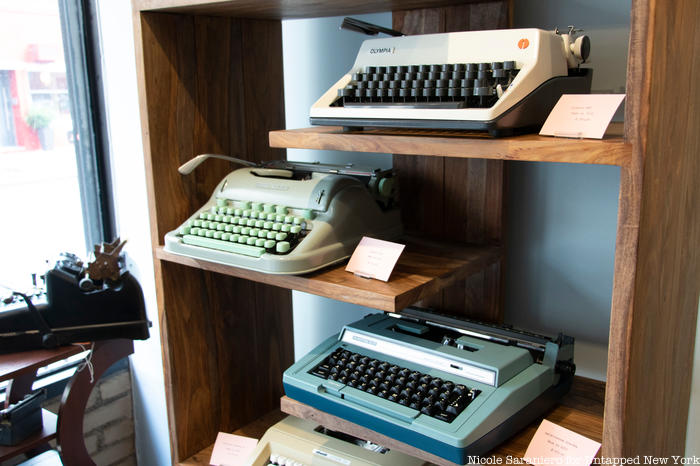 The Hermes 3000 is the green machine in the middle
The Hermes 3000 is the green machine in the middle
Show business has also help the modern age of typewriters flourish. Schweitzer says he is often approached by prop departments for rentals. Gramercy typewriters have been featured in Amazon’s series The Marvelous Mrs. Maisel and the movie The Post, among other television shows, movies and documentaries. The star of The Post, Tom Hanks is an avid typewriter enthusiast and a client of the Gramercy Typewriter Co. Hanks will often have Paul check out a machine before he decides to buy it.
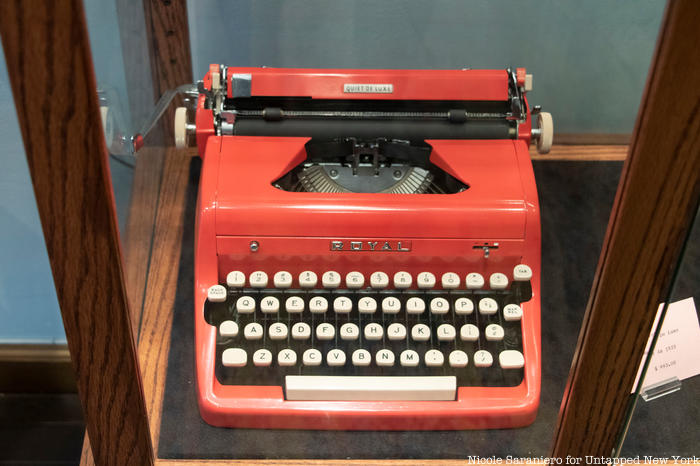
The small storefront is filled with typewriter related advertising, signage, and of course a selection of refurbished machines for sale. Some of the most popular models that people come looking for are the colorful ones made in the 1950s, like the red Royal pictured above. Anyone who has an old machine lying around is welcome to bring it in for a free consultation.
When asked how it feels to carry on the legacy of the company with his son, a legacy that was started with his own father nearly ninety years ago, Paul says, “It’s been very enjoyable. I’ve always enjoyed this. That’s why I can say I’m here to 60 years. I look forward to getting to work every day.”
Next, check out 10 Stores in NYC That Sell Only One Thing: Chopsticks, Buttons, Fountain Pens and Cookbooks and Inside Faerman Cash Register Co. in Business for Over 100 Years on the Bowery
